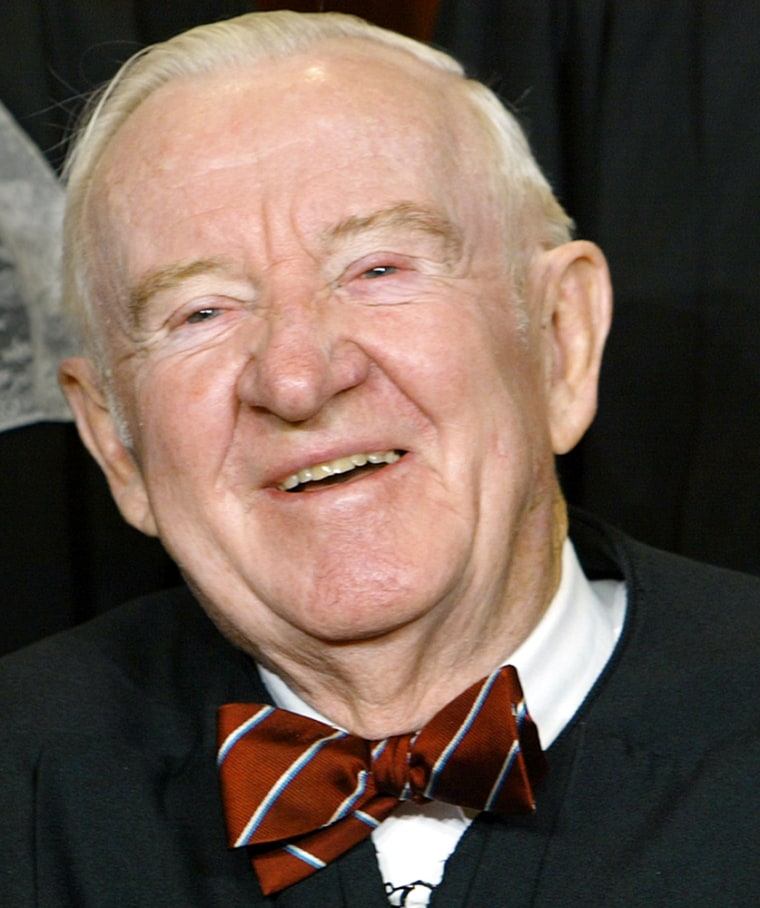Justice John Paul Stevens, a key vote in upholding the death penalty 30 years ago, now says he believes capital punishment is unconstitutional.
Stevens on Wednesday became the first of the nine sitting justices to say the death penalty violates the Eighth Amendment ban on cruel and unusual punishment.
"I have relied on my own experience in reaching the conclusion that the imposition of the death penalty represents 'the pointless and needless extinction of life with only marginal contributions to any discernible social or public purposes. A penalty with such negligible returns to the state (is) patently excessive and cruel and unusual punishment violative of the Eighth Amendment,'" he said in a concurring opinion rejecting a challenge to lethal injections in Kentucky.
He said, however, that he will respect court precedents in favor of capital punishment, explaining why he voted against the death row inmates in Kentucky.
Stevens' comments are reminiscent of the public conversion of Harry Blackmun, months before his retirement in 1994.
Blackmun repudiated his career-long acceptance of capital punishment and declared himself opposed to the death penalty in all circumstances.
"The death-penalty experiment has failed. I no longer shall tinker with the machinery of death," Blackmun wrote. Two other justices who served many years with Blackmun — William Brennan and Thurgood Marshall — were longtime death penalty opponents who most often were in the minority in capital cases.
Stevens, who turns 88 on Sunday, has given no indication that he plans to retire. He was new to the court when he co-authored the controlling opinion in 1976 that held that the death penalty is constitutional.
On Wednesday, he urged his colleagues to re-examine the constitutionality of capital punishment because of concerns that it is used in a racially discriminatory way and risks executing the innocent.
